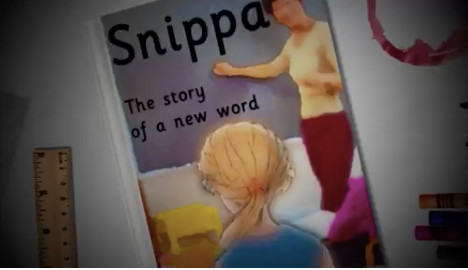Anna Kosztovics, the Malmö social worker who since 2000 has made the word “snippa” one of the most commonly used words in Swedish for girls’ vaginas, made the call for the English to do the same in a BBC video released on Thursday.
The video has had nearly 600,000 views on the BBC World Service’s Facebook page, and several hundred thousand on other BBC pages.
“I feel very proud, and also it’s very nice that my friends feel proud of me too,” Kosztovics told The Local on Saturday.
In the video Kosztovics argues that English lacks a word for “vagina” that is neither sexualised, stigmatising, overly medical, or a euphemism, just as Swedish did before she promoted the word “snippa”.
“There are endless rude words which I will not repeat now and then there are formal words like vagina,” she argues in her lightly accented English.
“But we don’t use those words as easily as we use the word ‘willy’ for boys so little girls grow up with the though that there is something wrong between their legs.”
“There are 360m people who speak English and I think it’s time for you to discover your own word,” she ends. “It might seem impossible, but it’s not. I did it! I say let the best word win”.
In her video Kosztovics describes how when she was pregnant with her own daughter, she realised how damaging it was that Swedish lacked a good word.
The risk, she explains, is that girls are left without a way to communicate if their vaginas feel good, if they are hurting, or, in the worst case, if they have been touched inappropriately.
In Sweden, the word “snippa”, which Kosztovics began promoting as recently as 2006, is now so widely used by parents and girls that it no longer sounds particularly right-on or politically correct.


 Please whitelist us to continue reading.
Please whitelist us to continue reading.